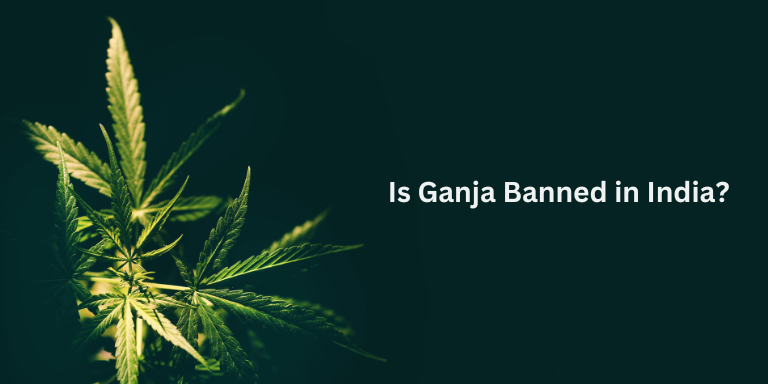Is Ganja Banned in India? Legal Insights

In recent years, discussions around the legality of cannabis, commonly referred to as ganja or weed, have gained attraction worldwide, including in India. For many, the legal status of cannabis in India remains a murky area, with questions about its legality, enforcement, and potential benefits swirling around. In this blog, we look into this topic to provide clarity on whether ganja is banned in India and explore the nuances associated with its legal status.
Background
Cannabis has a long history in India. It has been used for thousands of years in religious, cultural, and medical practices. The law has changed about it over time, though. Cannabis is still being looked at and talked about by the law in the country.
Is Ganja Legal in India?
The short answer is no, ganja or weed is not legal in India for recreational purposes. The Narcotic Drugs and Psychotropic Substances (NDPS) Act, 1985, governs the production, sale, transport, and use of cannabis and other narcotic substances in the country. Under this act, the possession, consumption, and sale of cannabis, including ganja, are illegal.
What is the Law in India About Weed or Ganja?
The NDPS Act categorizes cannabis as a Schedule I substance, indicating its high potential for abuse and lack of recognized medicinal value under Indian law. Possession, cultivation, transportation, and sale of cannabis can result in severe legal consequences, including imprisonment and fines.
Why is Ganja Illegal in India? Can It Be Legalized?
The prohibition of ganja in India stems from international drug control treaties, such as the Single Convention on Narcotic Drugs, 1961, to which India is a signatory. Additionally, concerns about the potential negative effects of cannabis use on public health and society have influenced its legal status.
The debate over the legalization of ganja in India is multifaceted. Proponents argue for its medicinal properties, economic potential, and the need to reform drug policies. However, opponents raise concerns about potential abuse, addiction, and societal implications.
If You Get Caught with Weed, What Happens?
The consequences of being caught with weed vary depending on factors such as the quantity involved and the individual's previous criminal record. Generally, possession of small amounts of cannabis for personal use can lead to imprisonment for up to one year or a fine, or both. For larger quantities or involvement in trafficking, the penalties can be much harsher.
But Why is Hemp Legal?
While ganja and hemp both come from the cannabis plant, they are distinct varieties with different uses and chemical compositions. Hemp contains negligible amounts of THC, the psychoactive compound in cannabis, making it non-intoxicating. Consequently, hemp is legally cultivated in India for industrial and medicinal purposes. Hemp based products, including textiles, cosmetics, and dietary supplements, are legally produced and sold in India.
Is There Any Balanced Approach We Can Go With?
Finding a balanced approach to cannabis regulation in India involves considering various factors, including public health, individual liberties, criminal justice reform, and economic opportunities. Some advocate for decriminalization or regulation of cannabis for personal use while maintaining restrictions on commercial production and sale. Others call for comprehensive drug policy reforms focusing on harm reduction, education, and treatment.
In conclusion, the legal status of ganja in India is clear: it is illegal for recreational use under the NDPS Act. However, ongoing debates and evolving perspectives suggest that the conversation surrounding cannabis regulation is far from over. As attitudes and policies continue to evolve globally, it remains to be seen how India will navigate the complex landscape of cannabis legalization and regulation in the future.

Leave a comment